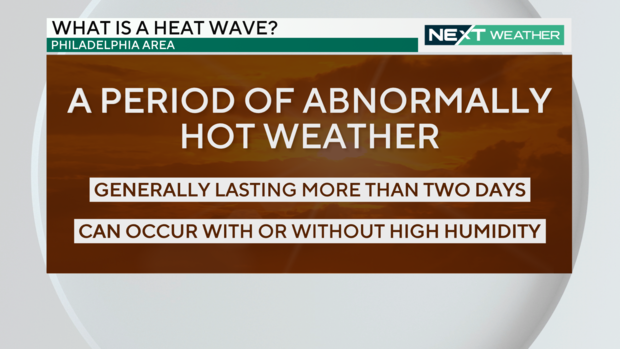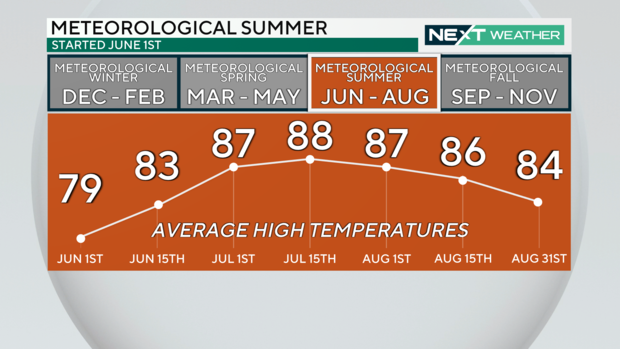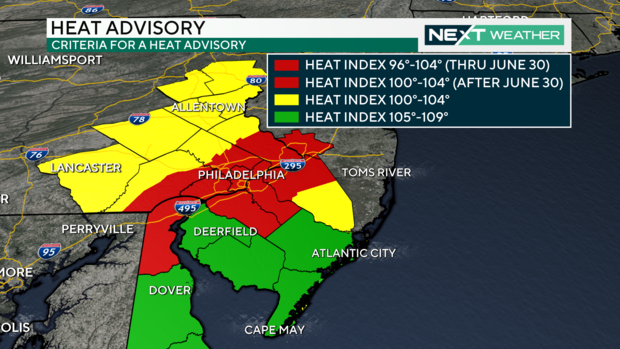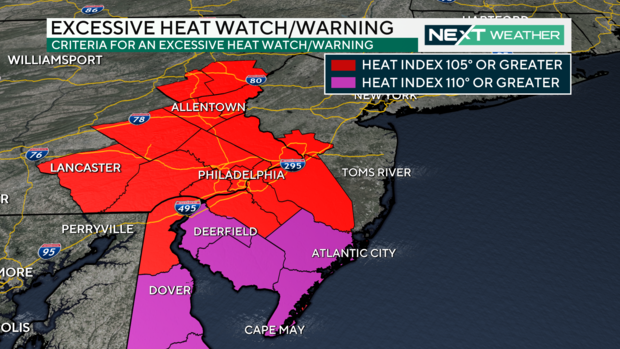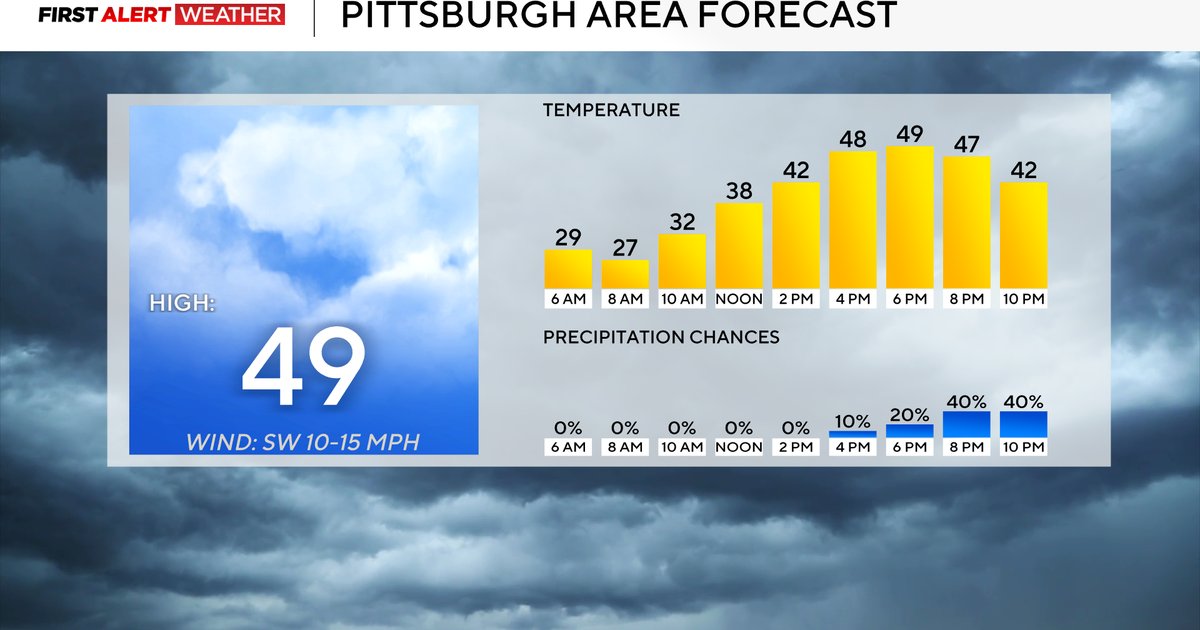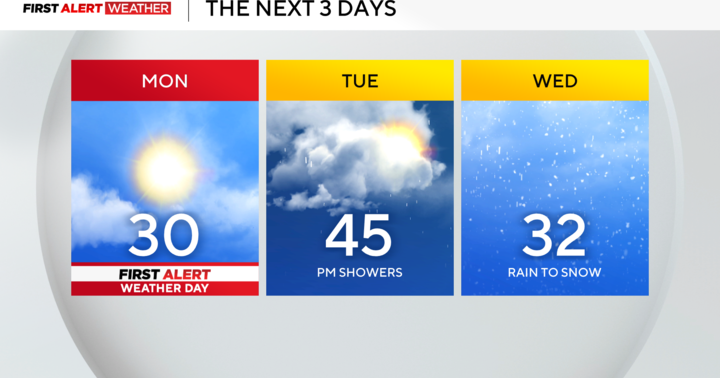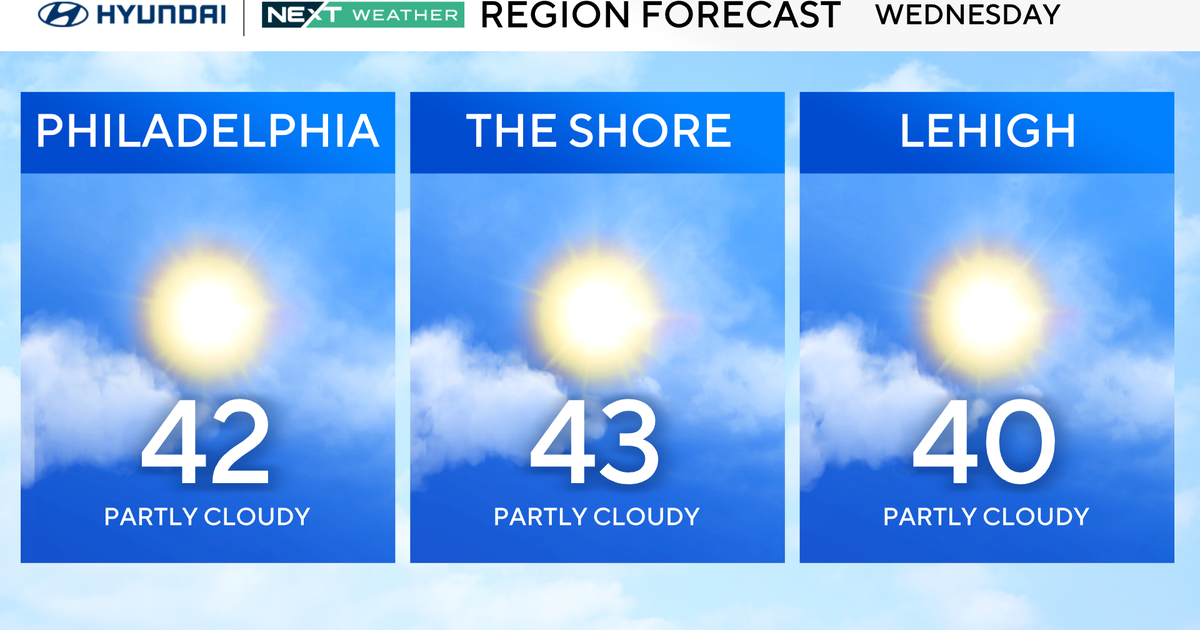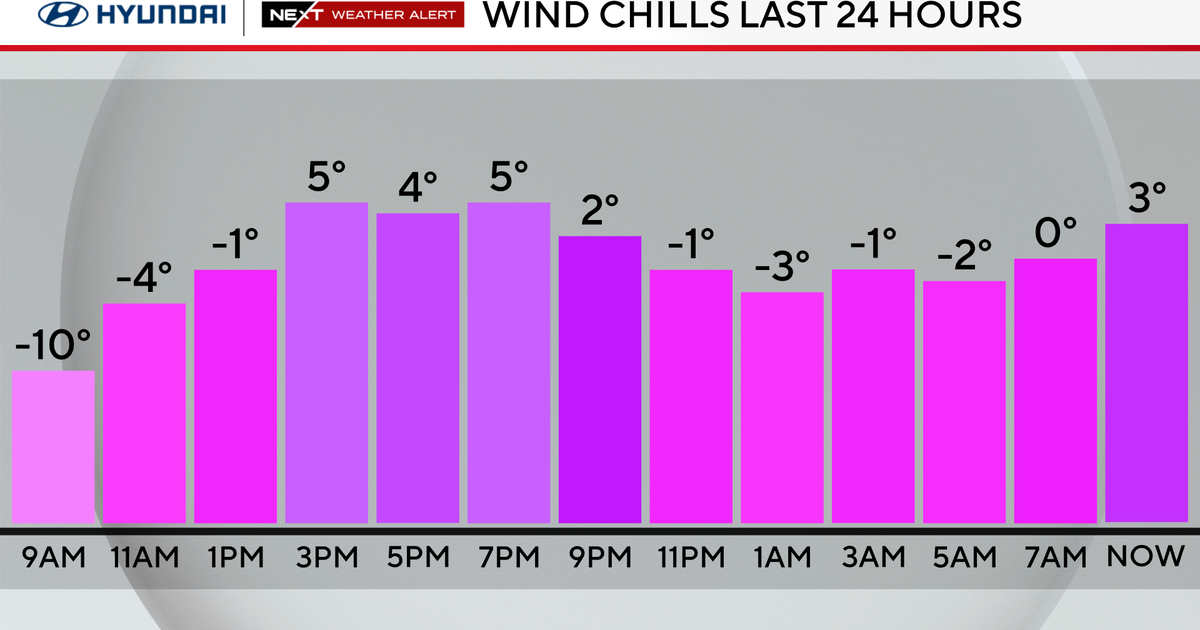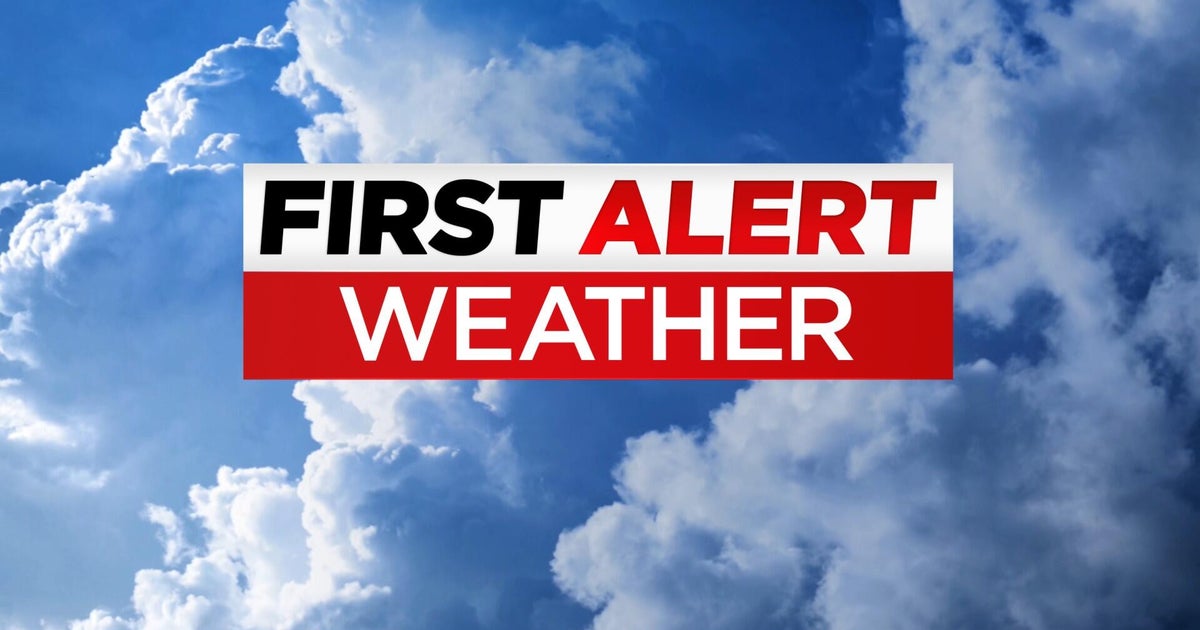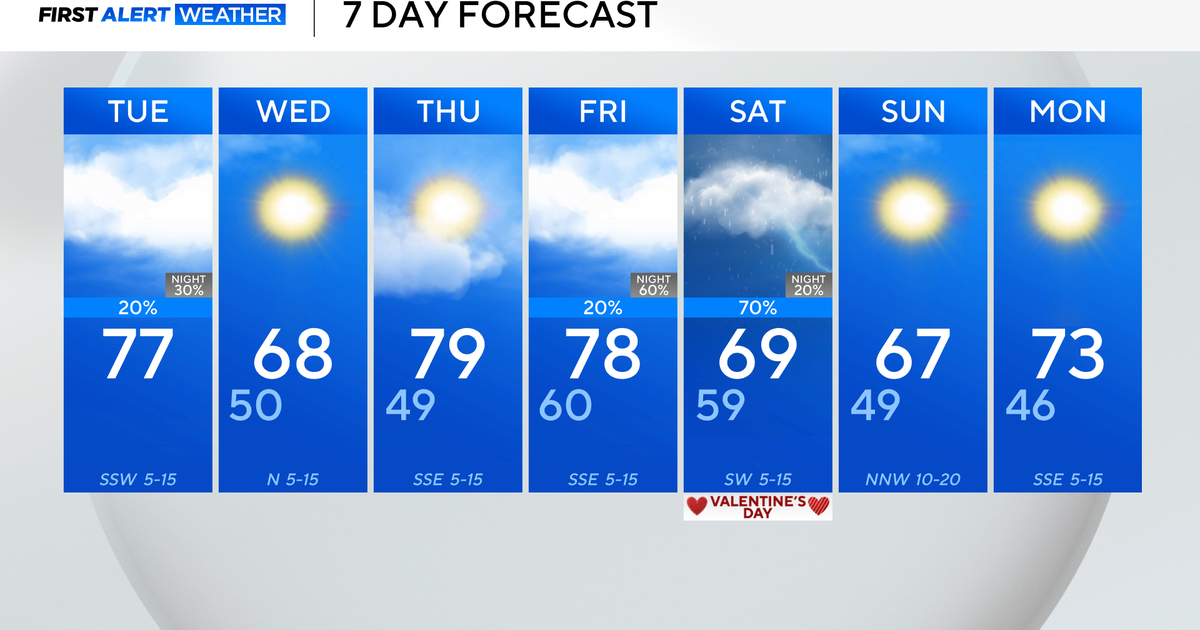What is a heat wave? Defining heat waves, heat advisories and warnings for the Philadelphia region
PHILADELPHIA (CBS) -- Heat and feeling hot can depend on who you ask and when you ask them. Are we talking about relatively hot temperatures in the winter or hot summer temperatures?
The uniqueness to how people experience heat makes it difficult to pin down an exact definition of a heat wave, but here's a rough breakdown with some more specifics when it comes to alerts that are issued when temperatures increase and could start to become dangerous for the general population.
What is a heat wave?
A heat wave is roughly defined as a period of abnormally hot weather that generally lasts more than two days. While this definition is rather broad, it has to be because communities in different parts of the country or the world can tolerate heat differently.
Regions that are more accustomed to 90-degree temperatures, such as Florida and the desert Southwest, may not consider a week in the summer with temperatures in the middle 90s a heat wave. While these temperatures are arguably hot, they are close to the temperatures that they typically experience during the summer months.
If those same temperatures were experienced in the Northeast or across portions of the Midwest, it would certainly be considered a heat wave. The normal high temperature in the Philadelphia area peaks in the middle of July at 88 degrees. For this reason, when temperatures are above 90 degrees for more than two days, it could be considered a heat wave.
That said, heat waves can occur with or without humidity, which ultimately impacts heat index values and what the temperature actually feels like.
For this reason, the National Weather Service issues heat alerts based on what the heat index is forecast to be rather than what the actual temperature is forecast to be.
Heat advisories
Just as different regions define heat waves differently, the criteria for some weather alerts, especially temperature-relative alerts, vary as well. Even here across the broader Delaware Valley, the criteria for when a heat advisory is issued depends on the location.
A heat advisory means that people can be affected by heat if precautions are not taken. The issuance of a heat advisory is important to raise public awareness that these precautions need to be taken. Heat advisories are also used to trigger other actions and regulations such as no evictions, no turning off of power, changing outdoor work requirements, etc.
For much of the Philadelphia urban corridor, which includes New Castle County in Delaware, eastern Chester County, Delaware County, lower Montgomery County, Philadelphia, lower Bucks County in Pennsylvania and Mercer County, northern Burlington County, Camden County and Gloucester County in New Jersey, a heat advisory is issued when the heat index is forecast to be between 96 degrees and 104 degrees for two consecutive hours any time through June 30. After June 30, the criteria for a heat advisory for that same area is when the heat index is forecast to be between 100 degrees and 104 degrees.
The Lehigh Valley, including Lehigh, Northampton Counties and Carbon and Monroe Counties in the Poconos as well as the southern half of Burlington County in New Jersey will have a heat advisory issued when the heat index is forecast to be between 100 degrees and 104 degrees for two consecutive hours any time of the year.
Atlantic, Cape May, Cumberland and Salem County, New Jersey, as well as Kent and Sussex Counties in Delaware will have a heat advisory issued when the heat index is between 105 degrees and 109 degrees.
Excessive heat watches and warnings
When conditions are forecast to be hotter than the criteria above the next level of heat alerts are activated — excessive heat watches and warnings.
An excessive heat warning means that some people can be seriously affected by heat if precautions are not taken. According to the National Weather Service, studies in Canada, Europe and the U.S. have indicated that mortality begins to increase exponentially as the heat increases or stays above a heat index of 104 degrees.
In addition to raising public awareness, the issuance of an excessive heat warning will alert hospitals and officials to take certain actions to prepare for and respond to an increase in emergency calls and activate programs to check on elderly and home-bound people.
In some cases, cooling centers can be open or designated and donation programs activated for fans and air conditioners. As in the case of an advisory, certain regulations may change such as turning off people's electricity, evictions and outside work requirements.
The criteria for an excessive heat warning for the majority of the Philadelphia area, including the Lehigh Valley and the Poconos is when the heat index is forecast to be 105 degrees or greater for two hours or more. Atlantic, Cape May, Cumberland and Salem County, New Jersey, as well as Kent and Sussex Counties in Delaware, will have an excessive heat warning issued when the heat index is forecast to be 110 degrees or greater.
An excessive heat watch is issued when the excessive heat warning criteria is expected within the next 48 hours.
